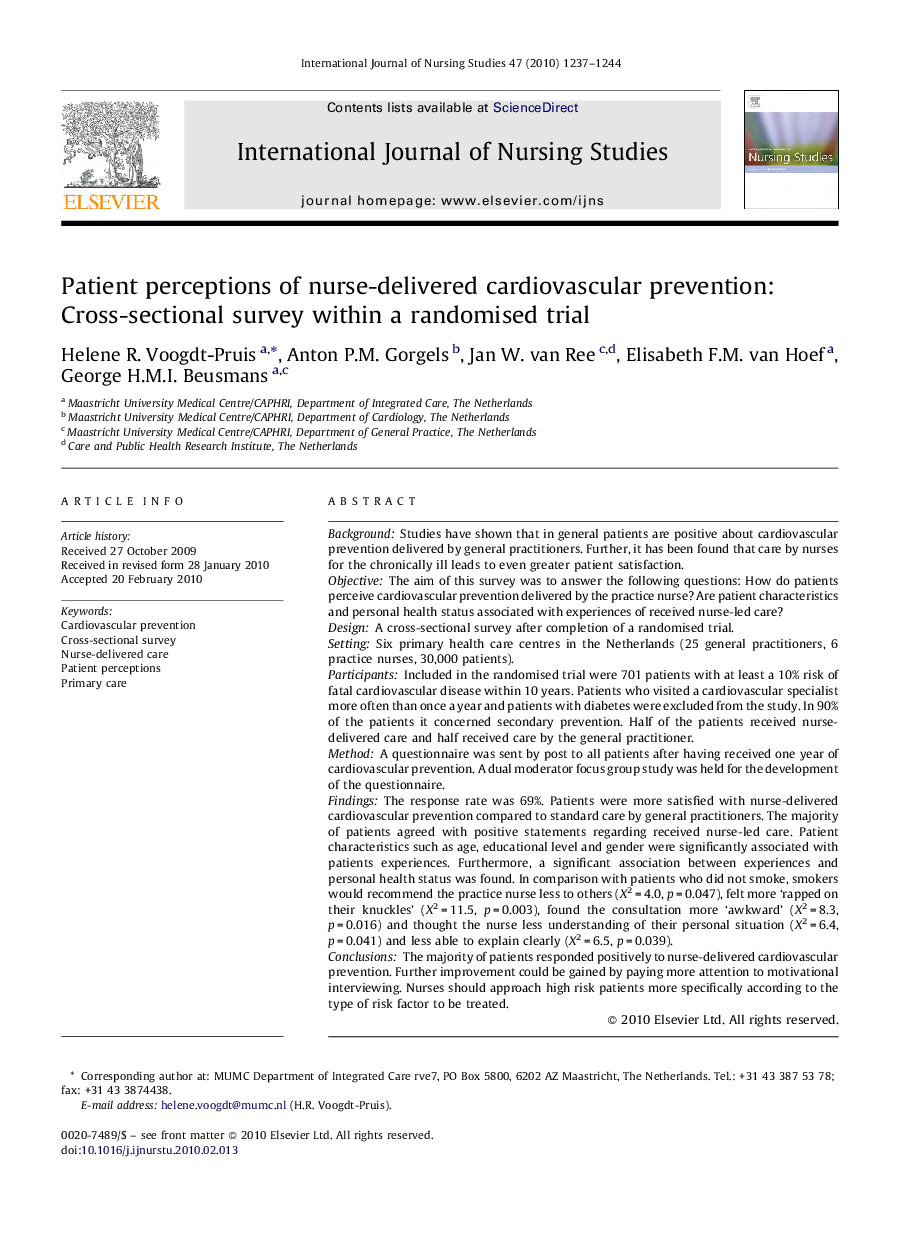| Article ID | Journal | Published Year | Pages | File Type |
|---|---|---|---|---|
| 1077628 | International Journal of Nursing Studies | 2010 | 8 Pages |
BackgroundStudies have shown that in general patients are positive about cardiovascular prevention delivered by general practitioners. Further, it has been found that care by nurses for the chronically ill leads to even greater patient satisfaction.ObjectiveThe aim of this survey was to answer the following questions: How do patients perceive cardiovascular prevention delivered by the practice nurse? Are patient characteristics and personal health status associated with experiences of received nurse-led care?DesignA cross-sectional survey after completion of a randomised trial.SettingSix primary health care centres in the Netherlands (25 general practitioners, 6 practice nurses, 30,000 patients).ParticipantsIncluded in the randomised trial were 701 patients with at least a 10% risk of fatal cardiovascular disease within 10 years. Patients who visited a cardiovascular specialist more often than once a year and patients with diabetes were excluded from the study. In 90% of the patients it concerned secondary prevention. Half of the patients received nurse-delivered care and half received care by the general practitioner.MethodA questionnaire was sent by post to all patients after having received one year of cardiovascular prevention. A dual moderator focus group study was held for the development of the questionnaire.FindingsThe response rate was 69%. Patients were more satisfied with nurse-delivered cardiovascular prevention compared to standard care by general practitioners. The majority of patients agreed with positive statements regarding received nurse-led care. Patient characteristics such as age, educational level and gender were significantly associated with patients experiences. Furthermore, a significant association between experiences and personal health status was found. In comparison with patients who did not smoke, smokers would recommend the practice nurse less to others (X2 = 4.0, p = 0.047), felt more ‘rapped on their knuckles’ (X2 = 11.5, p = 0.003), found the consultation more ‘awkward’ (X2 = 8.3, p = 0.016) and thought the nurse less understanding of their personal situation (X2 = 6.4, p = 0.041) and less able to explain clearly (X2 = 6.5, p = 0.039).ConclusionsThe majority of patients responded positively to nurse-delivered cardiovascular prevention. Further improvement could be gained by paying more attention to motivational interviewing. Nurses should approach high risk patients more specifically according to the type of risk factor to be treated.
